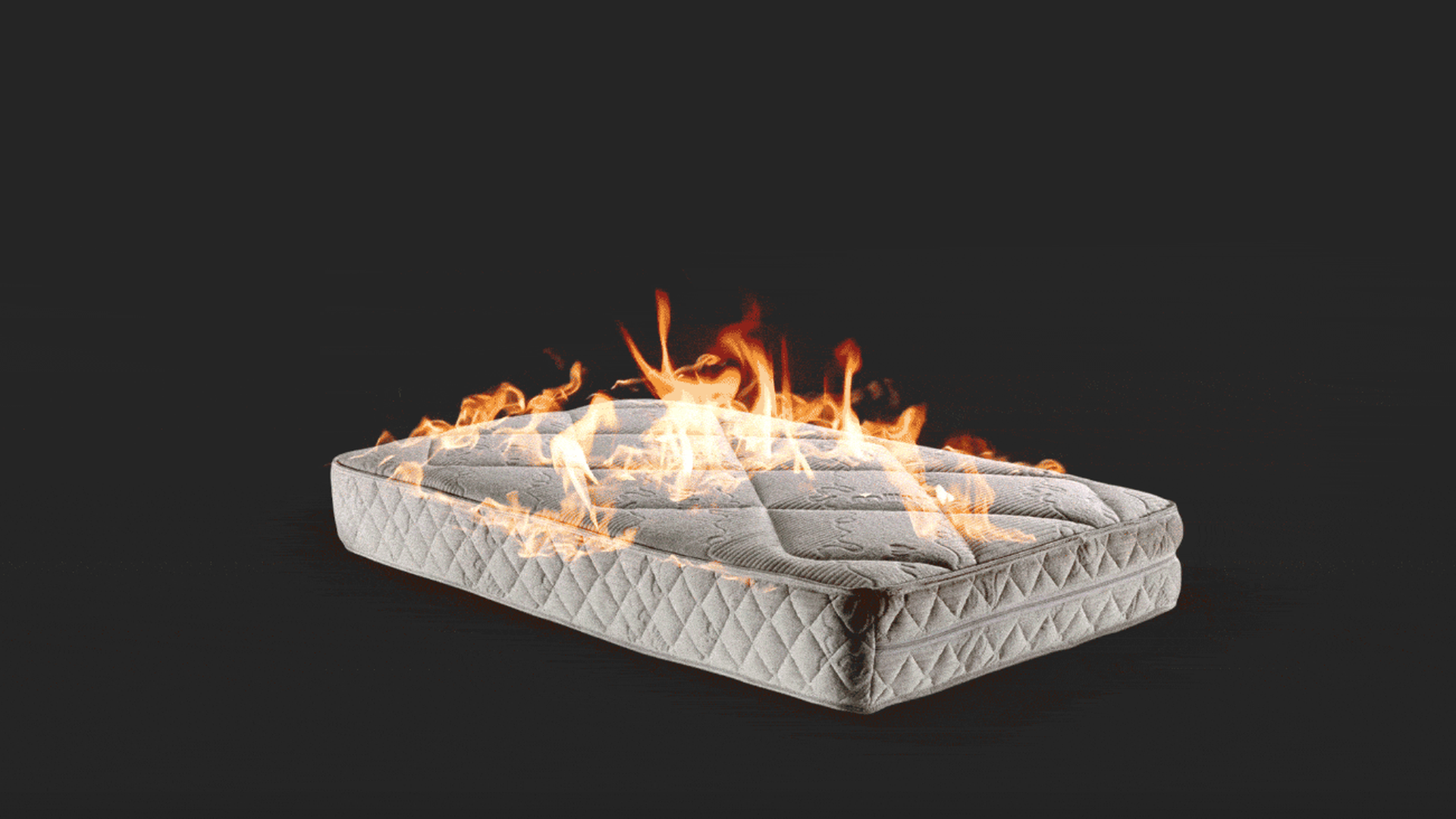Unpacking Casper's sleepy IPO
Add Axios as your preferred source to
see more of our stories on Google.

Illustration: Aïda Amer/Axios
Casper Sleep, the mattress retailer that was valued at more than $1 billion by venture capitalists, last night priced its IPO at the bottom of an already-slashed price range.
Reality check: Yes, this went just about as badly as most of us thought it would. No, it shouldn't be used as an avatar for the broader IPO or DTC markets.
Bad bed: Casper originally filed to price shares at between $17-$19, which already signaled a bit of a valuation haircut. Then it slashed the range to $12-$13, with insiders NEA and IVP agreeing to buy around 10% of the float (a very unusual move for VCs, outside of biotech). It ended up pricing at just $12 per share, for an initial market cap of $476 million and a fully-diluted value of around $547 million.
History: Casper held sales talks in 2017 with Target. What happened next depends on who you talk to. One version is that Casper walked after Target came about $100 million short of its $1 billion asking price. Another version is that Target never formally bid, after concluding it was uncomfortable with owning a long replacement cycle product that takes up lots of floor space.
- Target did end up making a minority investment, either because it still thought the company had upside (version #1) or as a make-good (version #2).
Investor reaction: This is an unprofitable consumer product company whose IPO prospectus seems to suggest that it discovered people like to have a buffer between themselves and the floor. It has a ludicrously generous return policy that mainly benefits landfill owners, and doesn't break out its non-mattress product sales.
- Plus, it has tons of competition — from the high end to low end, upstart to incumbent. One of those upstart rivals, Purple, has slightly higher revenue and a market cap just north of $700 million.
The big picture: Casper began life as a direct-to-consumer company and, like many other DTC startups, has expanded into physical retail (both third party and its own branded stores). But that's where many of the similarities end.
- As Target realized, mattresses have very long replacement cycles. Even if you love your Casper mattress, chances are you don't plan to buy another one for years (maybe even a decade). It's more like luggage than shoes or makeup, let alone like software.
- That's why Casper has worked to expand its product line into peripherals that range from bed-sheets to CBD gummies (to help you sleep). But Casper's decision to not provide data into how these other offerings have fared is not encouraging.
- On the broader IPO front, two other companies this morning will list after pricing at the top of their range.
The bottom line: Conventional wisdom was right, but too much extrapolation would be wrong.
Go deeper: Casper falls below unicorn status in new IPO filing
